Special ways of eating noodles in Yanjing, Tibet
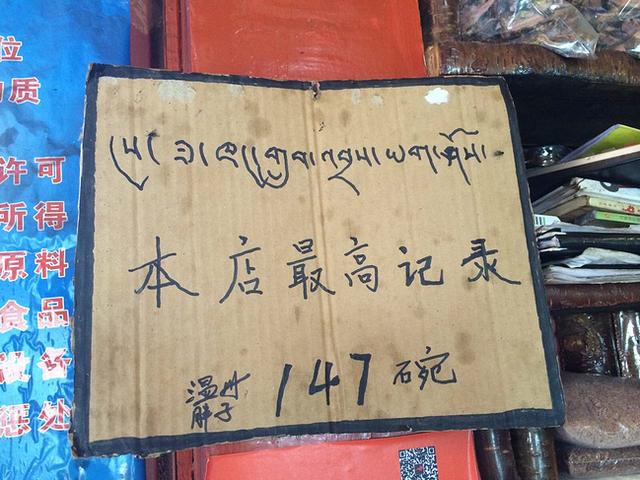
Sign in front of a noodle shop

Yanjing
Yanjing is a small town, so small that it only takes a half hour to walk from one end to the other on the one main road. However, here they do have a thousand-year-old tradition of a unique salt-making technology, the Qucainka hot springs, with 108 geothermal springs along the Lancang River, and Tibet’s only Catholic church. In addition, all along the main road are signs for Yanjing Gyagya noodles.
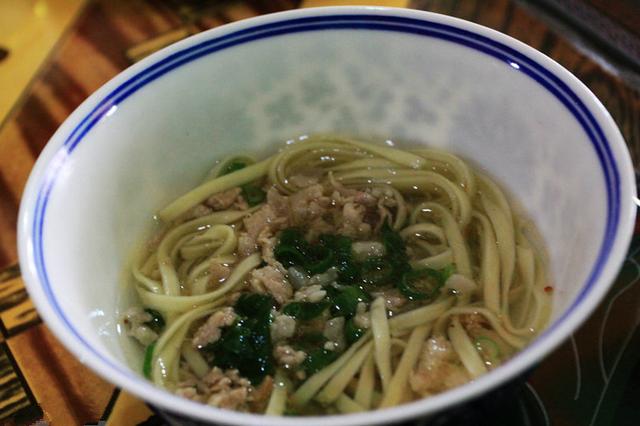
Gyagya noodles
Gyagya noodles, means to continue ordering more noodles as soon as one has finished eating. The wait staff will continue to “add, add, add”; as long as customers do not stop “eat, eat, eating”, wait staff will not stop "add, add, adding” more noodles. People try as hard as they do in a horse race, eating faster and more noodles. Traditionally, Gyagya noodles cost around 20 yuan per person no matter how much one eats; the more you eat, the happier this makes the friendly owner. The current record is 147 bowls of noodles; whoever can surpass 147 bowls will be rewarded by the owner.
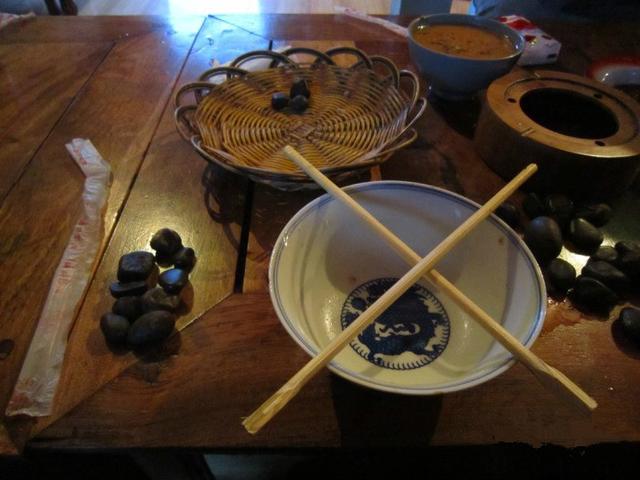
Stones used for counting number of bowls; crossed chopsticks indicates when full
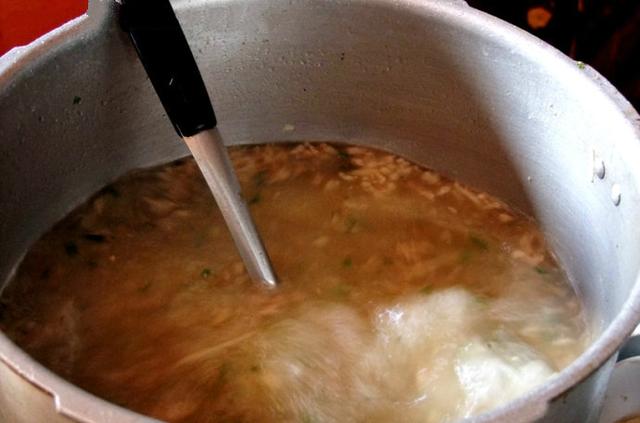
Tibetan pork broth stew
The unique flavor of Gyagya noodles comes from the broth, which locals call “lute meat”. It is understood that the so-called lute meat comes from a special meat processing method used in western Yunnan and eastern Tibet. After the pig is butchered, the innards are removed and meat is scraped off the bone, the blood is drained, and pepper, chilies, and black cardamom are mixed with salt and rubbed all over the meat, the meat is sewed up or trussed, and then it is allowed to marinate under the pressure of a flagstone before being removed and hung in the shade to dry in the wind. Because it looks like the shape of a lute, it is called “lute meat”. The lute meat marinating process is a thousand-year-old tradition. After it is finished, it can be taken and eaten at will, and it won’t go bad for one or two years. With a delicious flavor, bright color, unique taste, able to be boiled or stewed, it is a delicacy that Tibetan families serve to guests.
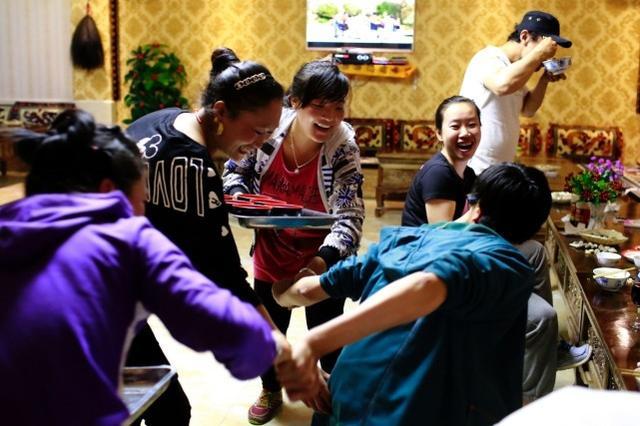
Happy “add” noodles scene
Yanjing Gyagya noodles are loved firstly because they are really delicious and use fine ingredients, and secondly, because eating Gyagya noodles is a lively scene, making everyone, whether eating or watching, smile. It is truly something that makes people happy.
Your Comment
Name E-mailRelated News
-
;
-
-

-
Yanjing County in Tibet: land of salt
Yanjing is well-known for its salt production, the only Catholic Church in Tibet, as well as harmonious co-existing of Tibetan Buddhism and Catholicism.
-
-
-

-
Yanjing County in Tibet: land of salt
Yanjing is well-known for its salt production, the only Catholic Church in Tibet, as well as harmonious co-existing of Tibetan Buddhism and Catholicism.
-
-
-
Past, present of Yanjing people in E Tibet
Blobzang Dhondup from Yanjing Village, Mangkam County, eastern Tibet's Chamdo Prefecture, owns a family-run hotel with Tibetan characteristics.
-
Based in Lhasa, Tibet Vista is a Tibet travel agency that specialized in Tibet permit, and Tibet tours for both private and group travelers at a local price!
•4 Days Lhasa City Group Tour from USD 460 •8 Days Everest Base Camp Group Tour from USD 850 •15 Days Mt.Kailash Group Tour from USD 1780 •2016 Tibet Train Tours from Beijing, Shanghai, Chengdu, Xining,etc










